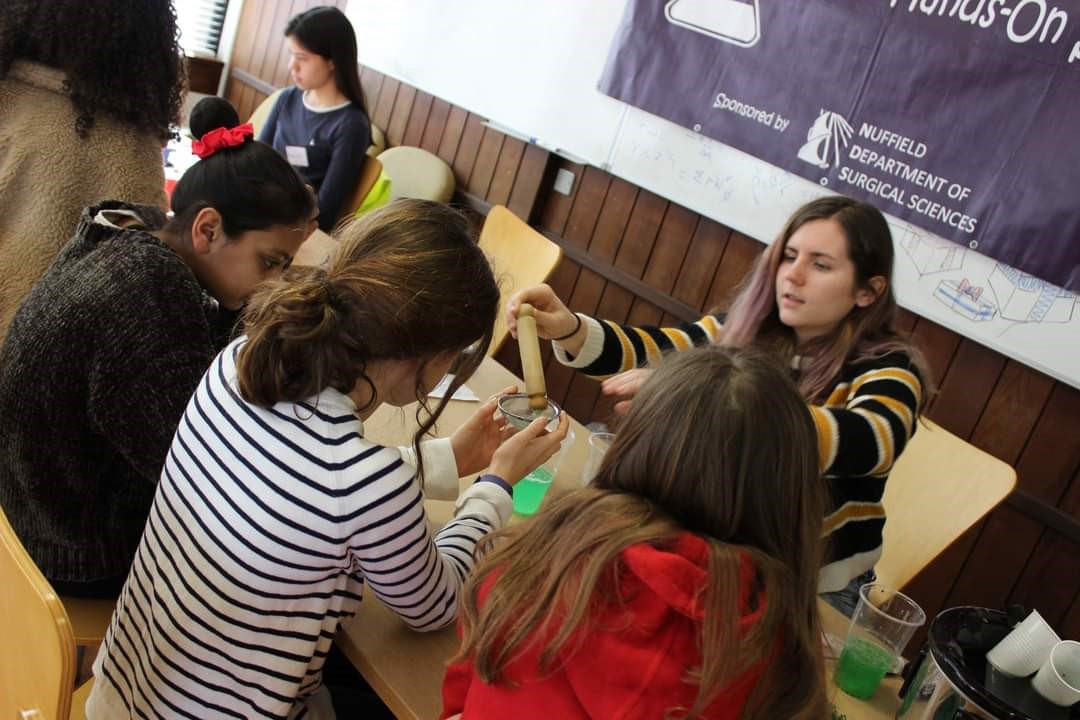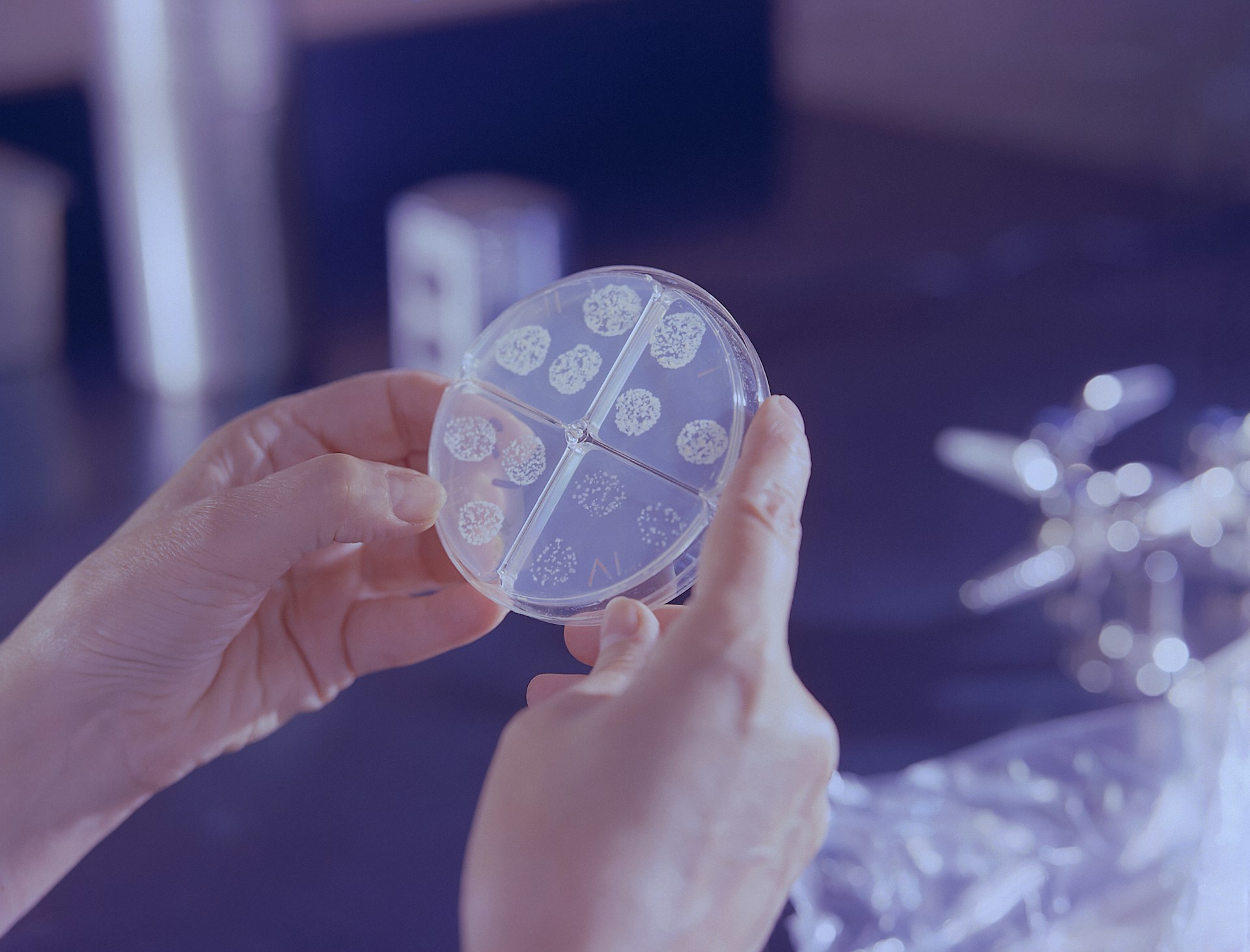I’m Gabriela, a second year Chemistry student at Christ Church1. I’m passionate about science, outreach and literature, attending as many talks as I can and generally trying to make the most out of this university experience.
Why did you decide to study your subject at Oxford?
“I think I’ve been a science person all my life, but I also can’t remember a time when I wasn’t a literature person.”
I’ve always tried bits and bobs of everything. I think I’ve been a science person all my life, but I also can’t remember a time when I wasn’t a literature person.
I became interested in Chemistry as soon as I started studying it in school, which felt weird since I’d heard a lot of discouraging stories about it from older students: how bad the teacher was (fortunately, the teacher changed before I began studying it) and how hard the subject was. Reflecting back, I now realise there were a lot of positive stories as well — I was just focusing too much on the bad ones.
Seven years ago, after seeing how much sense the world made to me after every class, I never doubted my passion again. And Chemistry has been in my life ever since.
Oxford was a choice I made a bit later, as I started to come to terms with the fact that my curiosity might never be satisfied, so I’ll always have to look for new things. That meant research. And that meant Oxford or a couple of other universities that I’d heard of.
What was your experience of the application process?
The UCAS2 application was quite straightforward. I just kept nagging a friend, asking them to take a look (and then another… and another) at my personal statement.
Applying for Chemistry at Oxford also involves sitting the first part of the Thinking Skills Assessment (TSA). Unlike PPE3 or other subjects, the test for Chemistry doesn’t include essay writing. I didn’t really know how serious the assessment was. At that time, it had only been a required entrance exam for Chemistry for two years. Still, I actually enjoyed doing some past papers and testing the general skills assessed by it. I think that people usually get stressed over the idea of an exam and forget to actually enjoy what’s covered in it. If there’s such a thing as a favourite test I sat, it would be the TSA.
After that, there were the interviews. I almost missed mine due to bad weather (and actually had them delayed) so by the start of my first one I was really nervous.
I only had the two interviews at Christ Church and I was almost sure I failed after the Organic tutor kept saying that everything I said could be right, but wasn’t and my Inorganic tutor had a blank face the entire time. And I got in. So don’t try to read your interviewers’ facial expressions or judge your own performance – you can’t know what the criteria are. After you have your interviews, just give yourself a break while waiting for the results. You’ve probably had a couple of terrible months being nervous about them so now that you can’t change anything, you might as well just relax. Especially if you’re in Oxford. It’s funny how this need to relax comes really naturally to me when I’m in Oxford and I need to finish my problem sheet.
What were your first weeks at Oxford like?
First term included many introductory lectures (but also some very fundamental ones such as thermodynamics), but generally I found most of the course quite easy to understand, so I had time to actually focus on my social life.
It took me some time to realise that I wasn’t going to make friends the usual way. I couldn’t just chill in the Junior Common Room4 (JCR) and start talking to any random person that walked by. It just wasn’t me and for some time I thought it was wrong and that I wasn’t going to form any meaningful bonds in Oxford. As a Romanian student, there was always the option to just hang out with people from the Romanian Society, but I didn’t want to limit myself.
I soon found out that I needed something to bond over with people and it needed to be something obvious and more personal than just being in the same college. And that’s how I ended up going to a lot of societies and clubs where you could just use the obvious conversation starters: “Have you fenced before?”, “What do you like about {insert whatever topic you can think of here}?”.
What does a typical day during term look like?
The day starts early, with two lectures at 9 am and 10 am. Twice a week, this is followed by a 6-hour practical. On other days, you might have a tutorial or a class. When I don’t have anything scheduled, I try not to spend the whole day in the library. Instead, I aim to have at least a couple of hours for myself: reading a book, going to a museum, taking a walk with some friends. I take meals at normal times during the day, usually in Hall5. Not just because I’m really bad at cooking, which I am, but also because it’s a great occasion to just see other people in college and have a chat.
“I aim to have at least a couple of hours for myself: reading a book, going to a museum, taking a walk with some friends.”
What is your experience of the Oxford tutorial system?
For me, tutorials are the most important part of the learning process, because the tutors are able to break down the concept until you’re able to understand it and somehow, they always find a way. Most of our tutorials are problem sheet-based with an occasional essay in Inorganic Chemistry.
“For me, tutorials are the most important part of the learning process.”
They’re structured in two parts. First, we just go over the topic discussed. I find it fascinating how you can look at a topic from so many perspectives, and having more people (lecturers, tutors, lab staff) explaining it means that you have the chance to find the point of view that suits you the most. In the second part, we take turns answering the questions from the sheet and we try to find the best solution together.
What skills will you gain from your course?
I’m planning to do a PhD and stay in research, so everything I learn is directly linked to my future, but I don’t think that’s all of it. Since we work on so many problem sheets, we are pushed to find creative solutions — especially when it comes to theoretical synthesis problems in organic chemistry and in practical lab work, where creativity is always a plus. Thus, I think we develop a useful way of thinking that can be applied well beyond university work.
What is College Life for you?
The collegiate system in Oxford is really great at giving students a sense of community with all that it involves: from welfare, entertainment and sports, to cake (wild, I know) and other representatives, to general meetings where motions about how to improve college life are discussed.
For me, though, college is mostly about the people I’ve made friends with, as I don’t really take part in the bigger events around college. In fact, you can get involved as little or as much as you want without feeling guilty and that’s what I enjoy about it.

Meadow Building at Christ Church, Oxford
Source: https://pixabay.com/photos/meadow-building-christchurch-college-1593695/
Free for commercial use.
How is life outside university & college?
My only big problem with Oxford life is that there’s always so much to do and I often find myself running from one event to another or, even worse, having to choose between them. I regularly go to talks on (very) different subjects: quantum physics, eco-friendly economies, modelling the human brain on a computer or Elif Shafak’s most recent book. I’m also getting involved with science outreach around UK and I’m trying to empower kids to think about science as an actual option in life.
There’s a lot of fun, too: formal dinners, karaoke nights and trying to find the best vegan meal in Oxford. During my first year I took up fencing just because I couldn’t say no to a friend – and it was really worth it. I think that says everything about the best way to find cool things to do: just try things that seem too bizarre for you and you’ll find yourself loving them!
How did you find Oxford’s way of dealing with remote teaching?
It was a lot easier for Oxford than for other universities to move everything online. The pandemic started being taken seriously in the UK just at the end of our term, so the university had 6 weeks to get ready for this. And I’d say they did a fair job: most of the books are now available online (or you can get somebody from the staff to post them to you or just scan them) and the lectures, labs and tutorials happen regularly.
In terms of lectures, I think it’s even better than before. The Department of Chemistry used to never record lectures, so if you missed it or just didn’t understand everything during the live lecture, you had to use a textbook or ask your tutor or a friend. Now, you can watch the recordings whenever you want and as many times as you need to. For me, that makes revision a lot easier.
Lab-wise, I enjoyed the practicals that were now 100% computational, because I’ve always loved programming, but I’m aware that students who preferred wet labs won’t agree with me. And I miss the fun teamwork in the actual lab.
Tutorials and classes have also changed. The information is still the same, of course, but Microsoft Teams is not the best at mediating human connection. It’s especially inconvenient when you can only see 4 people at a time, even though there are 8 people in the call. But I do appreciate the tutors’ work to teach us as efficiently as possible, without putting a lot of pressure on us during all of this.
That is true for most of the decisions and actions of the Department, which turned Chemistry from one of the hardest subjects in Oxford into one of the most understanding and compassionate subjects.
Glossary:
- Christ Church is one of Oxford’s largest colleges and very popular with tourists. Perhaps its fame is also due to its featuring in movies, such as Harry Potter. It was founded in 1546 by King Henry VIII.
- The Universities and Colleges Admission Service – in the UK, the application process for universities is done through this platform
- Philosophy, Politics and Economics
- A common room for undergraduate junior members of the college. JCR is also used as the name for the student group organised to represent the members, support student projects etc.
- The Hall is the place in College where students can have their meals and regularly hosts formal dinners. Sometimes, it can be used for sitting some form of examinations.
This article is part of our series of ‘Student profiles’ where we explore the student life at Oxford. Did you ever wonder how students come to study at Oxford and how the application process feels like? What about all the quirky Oxford traditions, the college system and tutorials? And how does all this ‘Oxford experience’ differ between natural and social science courses? In this series we ask students to tell us about their experience.





